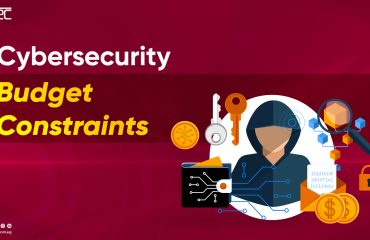
Artificial Intelligence (AI) has emerged as a transformative force in various industries, from healthcare to finance, and it’s also revolutionizing the cybersecurity landscape. However, with great power comes great responsibility, and as AI becomes an integral part of cybersecurity, ethical considerations take center stage. In this blog, we’ll explore the intersection of cybersecurity and AI ethics, and how organizations can navigate this complex terrain to protect both data and principles.
The Rise of AI in Cybersecurity
AI technologies, such as machine learning and deep learning, have bolstered the capabilities of cybersecurity solutions. They can detect anomalies, analyze vast amounts of data, and enhance threat detection. But, as AI’s role in cybersecurity expands, so do the ethical concerns.
Ethical Considerations in AI-Powered Cybersecurity
- Bias and Fairness: AI systems can inherit biases from their training data, potentially leading to discriminatory outcomes. In cybersecurity, this could result in unfair targeting or misclassification of threats.
- Privacy: AI algorithms that process personal data for cybersecurity purposes must strike a balance between protection and privacy. How can organizations ensure data security without infringing on individual rights?
- Transparency: AI often operates as a “black box,” making it challenging to understand how decisions are made. Transparency in AI-driven cybersecurity is crucial to maintain trust.
- Accountability: Who is responsible when AI-driven security systems make mistakes? Establishing accountability is essential to rectify errors and prevent recurrence.
- Security vs. Ethics: Balancing security needs with ethical principles can be a challenge. When is it acceptable to prioritize security over privacy or fairness, and vice versa?
The Role of Organizations
Organizations employing AI in cybersecurity must take proactive steps to address these ethical concerns:
- Ethical Frameworks: Establish clear ethical guidelines and principles that align with the organization’s values and the expectations of users and stakeholders.
- Diverse Training Data: Ensure AI models are trained on diverse and representative datasets to minimize biases.
- Ongoing Monitoring: Continuously monitor AI systems for bias and other ethical issues, and implement mechanisms to correct them.
- User Education: Educate users and employees about how AI is used in cybersecurity and the ethical considerations involved.
- Transparency Reports: Publish transparency reports that provide insights into AI-driven cybersecurity operations and how data is handled.
The Way Forward
The convergence of cybersecurity and AI ethics presents both challenges and opportunities. While AI can enhance security, it’s imperative that ethical considerations remain at the forefront. By developing robust ethical frameworks, organizations can embrace the power of AI in cybersecurity while ensuring fairness, transparency, and accountability.
Conclusion
As AI continues to shape the future of cybersecurity, ethical considerations are integral to responsible and effective implementation. Balancing security needs with ethical principles is not just a technological challenge; it’s a moral imperative. By navigating the nexus of cybersecurity and AI ethics, we can build a safer, more secure digital world for all.



